Improve Your Home and Save on Energy Costs with Window Replacement
While many homeowners often oversee their home's windows, this component plays a pivotal role in energy efficiency and the overall aesthetics of your place. Imagine slashing down your energy bills while accentuating your home's curb appeal - dreamy right? Welcome to the world of window replacements! Plunge into our enlightening discussion on how replacing old, drafty windows can lead to significant savings on energy costs, all while upgrading your home’s style. It's not just about the view outside but also about rendering utility, style, and savings under one roof. Let's dive in to uncover more.
When considering replacing your windows, factors such as energy efficiency, material, style, and budget should be considered. It's important to choose the right windows that fit your needs and preferences while also providing optimal energy savings and increasing the overall value of your home. Working with a professional contractor can help you navigate these decisions and ensure a successful installation.
Factors to Consider When Opting for Window Replacement
When it comes to window replacement, it's important to consider various factors before diving into the project. By taking these factors into account, you can ensure that your investment will yield the desired results and improvements for your home. Here are a few key considerations:
1. Energy Efficiency: One crucial factor in window replacement is energy efficiency. Opting for energy-efficient windows can significantly reduce your energy consumption and lower your utility bills. Look for windows with high-quality insulation materials, double or triple glazing, low emissivity (low-e) coatings, and proper weather sealing. These features help to keep your home well-insulated, preventing heat loss during winters and heat gain during summers.
2. Durability and Maintenance: Another important consideration is the durability and maintenance requirements of the windows. Choose windows made from sturdy materials such as vinyl, fiberglass, or aluminum that can withstand various weather conditions and require minimal upkeep. Additionally, consider the ease of cleaning and overall longevity of the windows to ensure they will last for many years without significant wear and tear.
3. Aesthetics and Style: Window replacement also provides an opportunity to enhance the overall aesthetics of your home. Consider the architectural style of your home when selecting window designs. Whether you prefer classic double-hung windows or more modern casement windows, choose options that complement the existing style of your house. The right choice of design can greatly enhance your curb appeal and increase the value of your property.
4. Noise Reduction: If you live in a busy neighborhood or near traffic-prone areas, noise reduction becomes an important factor to consider. Look for windows with soundproofing features such as double or triple panes, laminated glass, or additional seals to minimize outside noise infiltration. With these features, you can create a quieter and more peaceful environment within your home.
5. Budgetary Constraints: Finally, consider your budget when planning a window replacement project. Determine how much you are willing to spend and explore different options within your price range. While it's important to stay within your budget, keep in mind that investing in high-quality, energy-efficient windows can provide long-term savings on energy costs and potentially increase the value of your home.
By considering these factors carefully, you can make an informed decision when opting for window replacement. Remember that each home is unique, and what works for one homeowner may not be the best choice for another. Take your time, do thorough research, and consult with professionals if needed to ensure that you choose the right windows that will meet both your functional and aesthetic requirements.
Existing Window Size and Dimensions
Before proceeding with a window replacement project, it's essential to assess the size and dimensions of your existing windows. Understanding these aspects will help determine the feasibility of replacing them and aid in selecting suitable replacement options.
For instance, if you have large bay windows or custom-sized windows, it's crucial to ensure that replacement options are readily available in similar sizes or that customization options exist.
One way to gather accurate measurements is by measuring the frame openings from inside the house. Take measurements of the height, width, and depth of each window opening. Additionally, note any unique features such as arches or irregular shapes that may require specialized replacements.
Once you have these measurements, consult with professional window installers or suppliers who can guide you in finding appropriate replacement windows that match the size of your existing frames. They can provide advice on standard sizes available on the market or discuss custom options based on your specific requirements.
Considering existing window size and dimensions before starting the replacement process ensures a smoother transition from old to new windows while ensuring a proper fit. It also eliminates surprises during installation and helps avoid additional expenses associated with modifying openings or frames.
Energy Efficiency Ratings
When it comes to window replacement, one of the key factors to consider is the energy efficiency of the new windows. Energy efficiency ratings provide valuable information about the performance of windows in terms of insulation and heat transfer. These ratings help homeowners make informed decisions that can lead to significant savings on energy costs and contribute to a more sustainable environment.
The two primary energy efficiency ratings to look for in windows are the U-factor and the Solar Heat Gain Coefficient (SHGC). The U-factor measures how well a window insulates against heat loss, with lower values indicating better insulation. On the other hand, the SHGC represents how well a window blocks solar heat from entering your home, with lower values indicating better heat resistance.
Selecting windows with low U-factor and SHGC values can have several benefits. Firstly, they can significantly reduce energy consumption by minimizing heat loss during colder months and preventing excessive heat gain during hotter periods. This improved insulation can help stabilize indoor temperatures, reducing the need for constant heating or cooling and resulting in noticeable cost savings on utility bills.
Additionally, energy-efficient windows can enhance comfort within your home by reducing drafts and maintaining a more consistent temperature throughout different seasons. By blocking excessive solar heat gain, they also prevent hot spots near windows, creating a more comfortable living environment without relying heavily on air conditioning systems.
Furthermore, investing in energy-efficient windows demonstrates your commitment to sustainability and environmental conservation. By minimizing energy usage and reducing your carbon footprint, you contribute positively to efforts aimed at mitigating climate change and fostering a greener future for generations to come.
For instance, imagine living in an older home with outdated single-pane windows. During winter, you may notice cold drafts seeping through the windows, making it challenging to maintain a warm atmosphere indoors. However, replacing those old windows with ones that have higher energy efficiency ratings can transform your living space. The reduced drafts and improved insulation will bring newfound warmth and comfort, all while reducing your heating expenses.
It's worth noting that energy efficiency ratings can vary based on different climate zones and specific requirements. Therefore, it is essential to consult with a reputable window replacement professional who can guide you in selecting the most suitable windows for your home.
Selecting the Right Window for Replacement
When it comes to selecting the right window for replacement, several factors should be considered, such as style, material, and functionality. Style is undoubtedly an important aspect as it contributes to the overall aesthetics of your home. From traditional double-hung windows to modern casement or sliding windows, there are various styles available to suit different architectural designs and personal preferences.
However, beyond style considerations, the choice of material is crucial when selecting windows for replacement. Different materials offer various benefits and levels of maintenance. Let's explore some popular options:
- Vinyl Windows: Vinyl windows have gained popularity due to their durability, low maintenance requirements, and energy efficiency. They are resistant to rot, fading, and warping, making them an excellent option for those seeking long-lasting performance.
- Wood Windows: Wood windows provide a classic and timeless look that many homeowners appreciate. They offer excellent insulation properties but require regular maintenance to protect against weather damage and potential rot.
- Fiberglass Windows: Fiberglass windows are known for their strength, durability, and energy efficiency. They can withstand extreme temperatures without warping or expanding, making them ideal for harsh climates.
- Aluminum Windows: Aluminum windows are lightweight and easy to maintain. While they may not offer the same level of insulation as other materials, advancements in thermal breaks have improved their energy efficiency in recent years.
For example, imagine living in a coastal area where the salty air can corrode metal surfaces quickly. In this case, choosing vinyl or fiberglass windows would be a wise decision, as they are more resistant to corrosion and can withstand the harsh coastal environment.
When selecting the right window for replacement, it's crucial to consider your specific needs, budget, and the climate in which you reside. Consulting with a professional window installer can provide valuable guidance and expertise tailored to your unique requirements.
- According to ENERGY STAR®, replacing old windows with energy-efficient ones can save homeowners between $126 to $465 a year depending on their geographical location and the type of window installed.
Material Choices and Their Benefits
When it comes to window replacement, choosing the right material is crucial for both aesthetics and functionality. Different materials offer various benefits, so let's explore the options and their advantages.
1. Vinyl Windows: Vinyl windows are a popular choice due to their affordability, durability, and low maintenance requirements. They are resistant to damage from moisture, weathering, and insect infestations. Additionally, vinyl windows offer great insulation properties, helping to regulate indoor temperature and reduce energy costs. With an array of colors and styles available in vinyl, homeowners can easily find options that complement their home's architectural style.
2. Wood Windows: For those seeking a classic and elegant look, wood windows are an excellent choice. Wood offers natural beauty, warmth, and versatility in design. Homeowners can paint or stain wood windows to match their desired aesthetic. Furthermore, wood has inherent insulating properties, which helps in maintaining comfortable indoor temperatures. However, it's important to note that wood windows require regular maintenance to prevent rotting or warping.
3. Fiberglass Windows: Fiberglass windows are known for their strength and durability. They have a similar appearance to wood but without the extensive maintenance requirements. Fiberglass is highly resistant to the harsh effects of temperature changes and UV rays, making it ideal for extreme climates. These windows provide excellent energy efficiency by reducing heat transfer and maintaining a consistent indoor environment.
4. Aluminum Windows: Although less commonly chosen for residential applications than other materials, aluminum windows have unique advantages. They are lightweight yet strong, allowing for larger window sizes and expansive views. Aluminum is also highly resistant to corrosion, making it suitable for coastal areas where saltwater exposure can be an issue. However, aluminum is a good conductor of heat and cold which may impact its energy efficiency.
Cost Analysis: New Windows vs. Old Windows
When considering window replacement, it's essential to evaluate the costs and benefits associated with this investment. While the upfront expense of installing new windows may seem daunting, it's important to consider the long-term savings and other advantages.
1. Energy Efficiency: Older windows are often less energy-efficient, allowing drafts and air leakage that can increase heating and cooling costs. By investing in new energy-efficient windows, you can significantly reduce energy consumption and save on utility bills over time. The improved insulation properties of modern windows can lead to substantial savings in the long run.
2. Maintenance and Repair: Older windows may require frequent maintenance or repairs due to wear and tear, rotting frames, or malfunctioning hardware. This can add up in terms of time and expenses spent on repairs. Newer windows, especially those made from durable materials like vinyl or fiberglass, generally require minimal maintenance and have longer lifespans, saving you money on repairs in the future.
3. Resale Value: Upgrading to new windows can enhance your home's curb appeal and overall value. Potential buyers often view new windows as a desirable feature due to improved aesthetics and energy efficiency. This can give you a competitive edge when selling your home and potentially increase its resale value.
For example, let's say you're planning to sell your home in a few years. Investing in new windows now could help attract buyers who appreciate the added benefits of energy efficiency and low maintenance.
4. Comfort and Aesthetics: Newer windows not only provide better insulation but also improve indoor comfort by reducing noise transmission from the outside. They also offer an opportunity to update the style and appearance of your home, giving it a fresh look that aligns with your personal taste.
While there is an initial cost associated with window replacement, considering the long-term benefits and savings make it a wise investment in your home.
Long-term Energy Savings
When it comes to window replacement, one of the most significant benefits is the potential for long-term energy savings. Older windows tend to be less energy-efficient, allowing drafts and heat transfer that can drive up your utility bills. By replacing them with modern, energy-efficient windows, you can significantly reduce your home's energy consumption and ultimately save money in the long run.
Imagine living in an older home with original single-pane windows. During the winter months, you might notice chilly drafts seeping through the cracks, driving up your heating costs as your HVAC system struggles to maintain a comfortable temperature. Conversely, during summer, these outdated windows may allow heat to penetrate your home, forcing your air conditioning unit to work overtime. Such inefficiencies in temperature regulation can lead to exorbitant energy bills month after month.
New, energy-efficient windows are designed to combat these issues. They often feature multiple panes of glass with insulating gas fills between each layer, low-emissivity (Low-E) coatings to reflect infrared heat radiation, and improved weather-stripping to minimize air leakage. These features collectively contribute to reducing drafts, providing better insulation, and improving your home's overall energy efficiency.
By investing in window replacement, you can effectively seal off any air leaks and enhance the insulation value of your home. This will not only make it more comfortable year-round but also help you save on heating and cooling costs. Over time, these cost savings can add up significantly, resulting in a return on investment that makes window replacement a wise financial decision.
Having explored the long-term energy savings that come with window replacement, let's now shift our focus to navigating the window replacement process itself.
Navigating the Window Replacement Process
Embarking on a window replacement project may seem daunting at first glance. However, armed with a basic understanding of the process and some practical tips, you can navigate it with confidence. Below, we'll outline the key steps involved in the window replacement process to help you get started.
- Assessment and Planning: Begin by assessing your current windows and identifying the reasons for replacement. Consider factors such as energy efficiency, aesthetics, functionality, and any existing issues like leaks or damage. This assessment will help you determine your specific goals and requirements for the replacement project.
- Research and Selection: Next, research different window types, materials, and brands available in the market. Consider factors like energy efficiency ratings (such as U-Factor and Solar Heat Gain Coefficient), durability, maintenance requirements, and cost. This information will help you make an informed decision when selecting new windows that meet your needs and preferences.
- Finding a Reputable Contractor: It's crucial to find a reputable and experienced contractor who specializes in window replacement. Seek recommendations from friends, family, or neighbors, and read online reviews to gauge their reputation. Be sure to obtain multiple quotes and ask for references from previous clients before making a final decision.
- Preparation and Installation: Once you've selected a contractor, they will visit your home to take accurate measurements of your windows and discuss installation details. Proper preparation is essential for a successful installation, including removing blinds or curtains, clearing the area around each window, and protecting your furniture or flooring.
- Installation and Post-Installation Inspection: On the day of installation, qualified professionals will remove the old windows and replace them with new ones according to manufacturer guidelines. After installation, conduct a thorough inspection alongside the contractors to ensure everything meets your expectations in terms of functionality, appearance, and overall quality.
Consider this scenario: You've done your due diligence in finding a reputable contractor specializing in window replacements for older homes with unique architectural features similar to yours. They guide you through each step with utmost professionalism, from the initial assessment to selecting the perfect window type and material. Their experienced installers complete the project efficiently, paying attention to every detail, and leave your home tidy and beautiful.
By carefully navigating the window replacement process, you can minimize stress and ensure a successful outcome that enhances the comfort, energy efficiency, and aesthetic appeal of your home.
Direct Benefits of Window Replacements
Replacing your windows can bring about a multitude of direct benefits for your home. In this section, we will explore some of these advantages that make window replacements a worthwhile investment.
One significant benefit is improved energy efficiency. Older windows are often poorly insulated, allowing air to leak in and out of your home. This results in inefficient heating and cooling, leading to higher energy consumption and increased utility bills. By replacing your windows with newer, more energy-efficient models, you can significantly reduce air leakage and better regulate indoor temperatures.
Let's consider an example to illustrate this point. Imagine you have a drafty window in your living room that allows cold air to infiltrate during the winter months. Despite cranking up the heat, the room remains chilly, and you find yourself bundling up in extra layers. By replacing that window with a more energy-efficient one, you'll notice a remarkable improvement in temperature control. The room will become comfortably warm, allowing you to enjoy cozy evenings without constantly adjusting the thermostat.
Another vital aspect to consider is noise reduction. If you live near a busy road or in a noisy neighborhood, you're likely familiar with the constant disruption caused by outside sounds seeping into your home. High-quality replacement windows, particularly those designed with soundproofing features, can create a barrier against unwanted noise infiltration. This contributes to a quieter and more peaceful living environment, allowing you to relax and unwind without disturbances.
Furthermore, window replacements offer aesthetic enhancements for your home's interior and exterior. With various styles, materials, and finishes available, you have the opportunity to update the look and feel of your home. Whether you prefer classic elegance or modern sleekness, there are replacement window options that can perfectly complement your desired aesthetic.
By investing in window replacements, you not only improve the functionality of your home but also enhance its overall appearance while enjoying the direct benefits of increased energy efficiency and noise reduction.
Increased Home Comfort and Energy Savings
One of the primary reasons homeowners choose to replace their windows is to enhance their overall home comfort. Upgrading to new windows can provide several advantages in this regard.
Firstly, replacement windows are designed with improved insulation capabilities. Enhanced insulation not only helps keep your home warm during colder months but also helps maintain a cooler indoor environment during hot summers. By reducing air leakage, these windows help ensure a consistent temperature throughout your home, eliminating uncomfortable drafts or hotspots.
Picture this: you're sitting in your favorite armchair by the window, trying to relax after a long day. However, a cold draft keeps finding its way past your current window, making it difficult for you to find true comfort. With new replacement windows installed, you'll be able to enjoy the cozy ambiance without even noticing any drafts. Your living space becomes an oasis of comfort where you can fully unwind, no matter the weather outside.
In addition to enhanced comfort, investing in replacement windows can lead to substantial energy savings in the long run. As mentioned earlier, older windows often lack proper insulation, allowing conditioned air to escape and outside air to infiltrate your home. This leads to increased reliance on heating and cooling systems, consuming more energy and driving up utility bills.
Newer windows, on the other hand, are engineered with energy-efficient features such as low-emissivity coatings and multiple panes of glass with gas fills. These advanced technologies work together to minimize heat transfer between the interior and exterior of your home. By trapping conditioned air indoors during extreme temperatures, replacement windows help reduce the strain on your HVAC system and lower energy consumption.
By embracing energy-efficient window replacements, you not only create a more comfortable living space but also contribute to environmental sustainability while enjoying the financial advantages of reduced energy bills.
Boosting Home Resale Value
When it comes to selling your home, maximizing its resale value is always a top priority. One effective way to achieve this goal is by investing in window replacement. New windows can significantly enhance the aesthetics and functionality of your home, making it more appealing to potential buyers.
First and foremost, updated windows can enhance the overall curb appeal of your property. Think about it - when potential buyers drive up to your house, the windows are one of the first things they notice. If they see old, worn-out windows, it might give them the impression that the home has been neglected or poorly maintained. On the other hand, if they see clean, modern, and stylish windows, it creates a positive first impression and adds perceived value to the property.
Not only do new windows improve the visual appeal of your home, but they also contribute to its energy efficiency. Buyers today are increasingly interested in energy-efficient features as they seek to save money on utility bills and reduce their carbon footprint. Energy-efficient windows with proper insulation and low-emissivity (Low-E) coatings can help regulate indoor temperatures by preventing heat transfer, keeping the interior cooler in summer and warmer in winter. By reducing reliance on heating and cooling systems, these windows can lead to long-term cost savings for homeowners.
Let's consider a scenario: You decide to sell your home without replacing the aging windows. During a showing, interested buyers notice drafts coming through the windows and feel cold spots near them. It raises concerns about insulation issues and energy inefficiency. As a result, they might either negotiate for a lower price or completely walk away from making an offer due to anticipated repair costs or ongoing high energy bills.
In contrast, imagine showcasing your home with brand-new windows that are not only visually appealing but also equipped with energy-efficient features. Interested buyers will appreciate how these modern additions make the home comfortable throughout the year and contribute to lower energy expenses. It creates an enticing selling point and adds value to your property.
In addition to curb appeal and energy efficiency, upgraded windows can offer other benefits that potential buyers find attractive. For example, newer windows are often designed with improved noise reduction capabilities, helping create a quieter and more peaceful living environment. They also come with advanced security features, such as reinforced glass or multi-point locking systems, providing peace of mind for homeowners concerned about safety.
Now, you might be thinking, "Will the investment in window replacement pay off when it's time to sell?" It's a valid consideration, as home improvement projects should ideally yield a return on investment (ROI). While the specific ROI can vary based on various factors like location, market trends, and materials chosen, studies have shown that window replacements tend to offer a high ROI compared to other remodeling projects. Additionally, updated windows can help shorten the time your home spends on the market by attracting more interested buyers who appreciate their value.
By investing in window replacement for your home, you not only enhance its aesthetic appeal but also increase its resale value. With improved curb appeal, energy efficiency, noise reduction, and security features, new windows make your home more desirable among potential buyers. As you prepare to sell your home, consider the long-term benefits that window replacement can provide in terms of increasing appeal and maximizing return on investment.
Subscribe to JP Exteriors's Blog


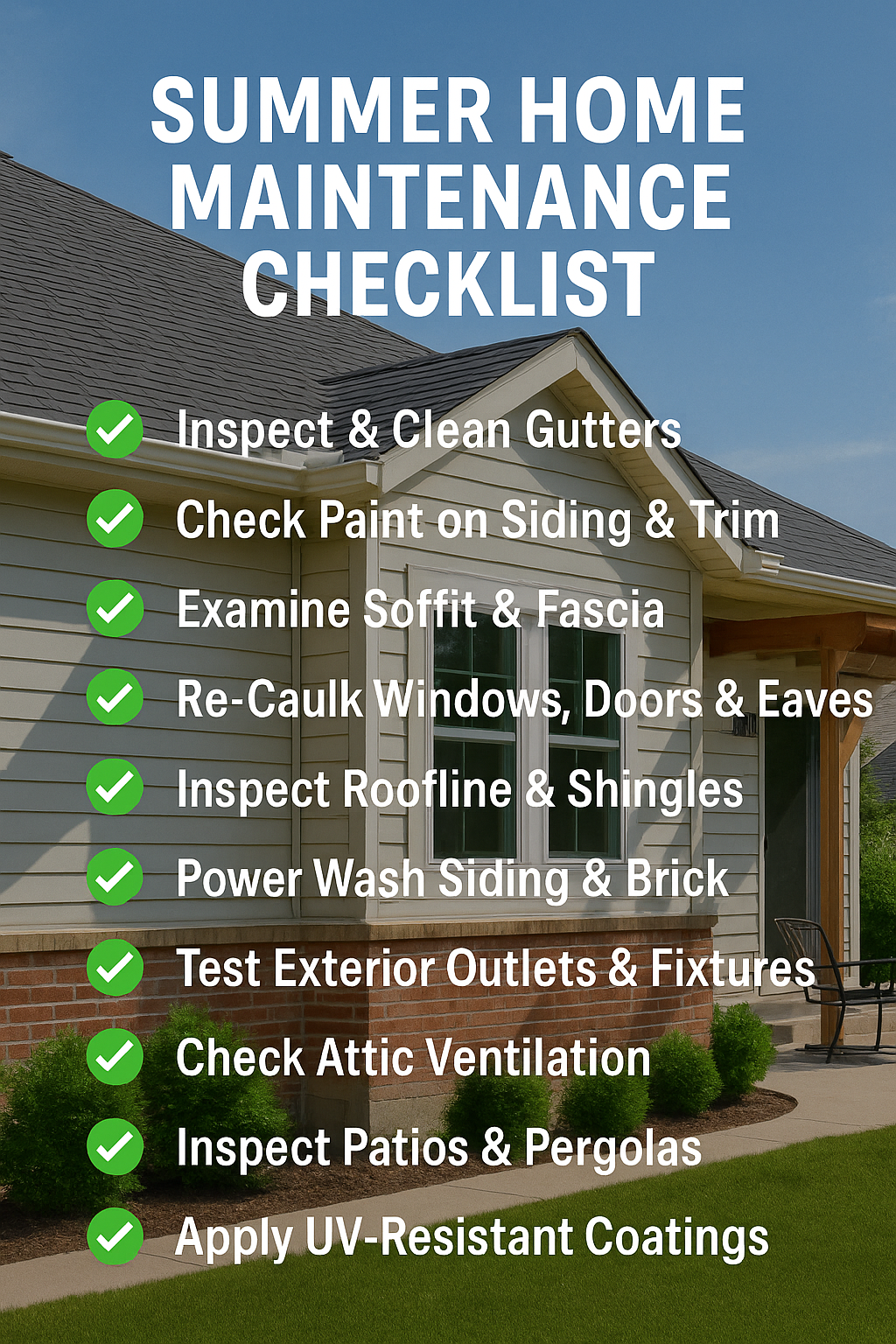
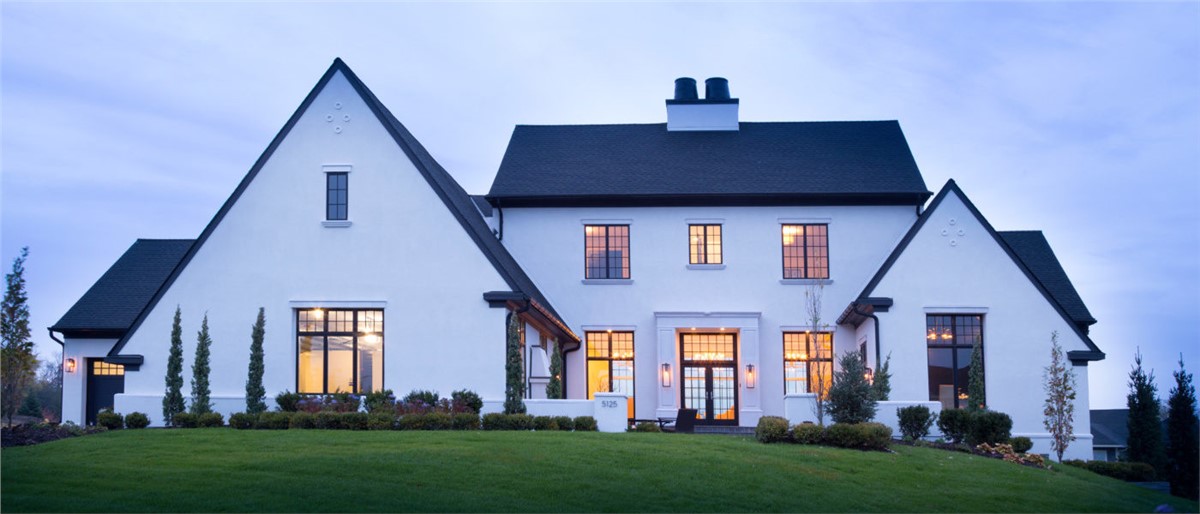
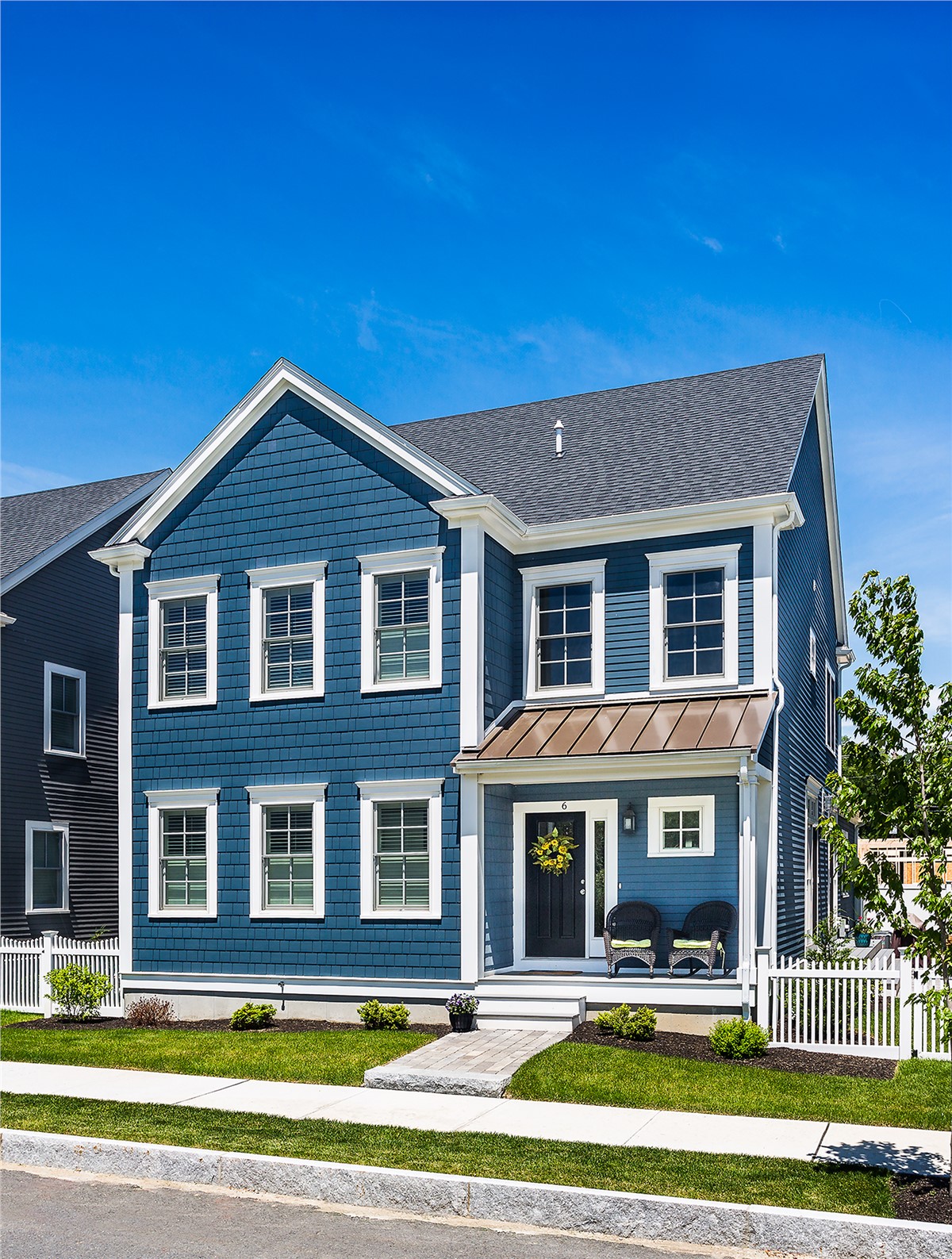
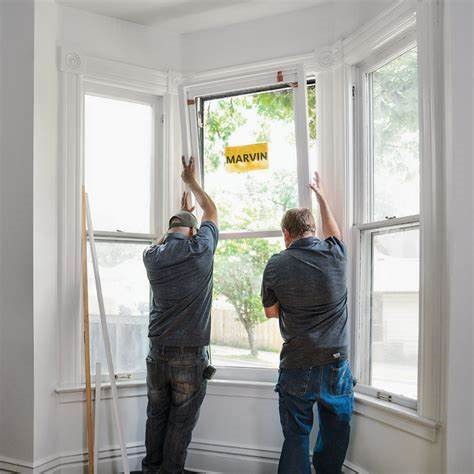
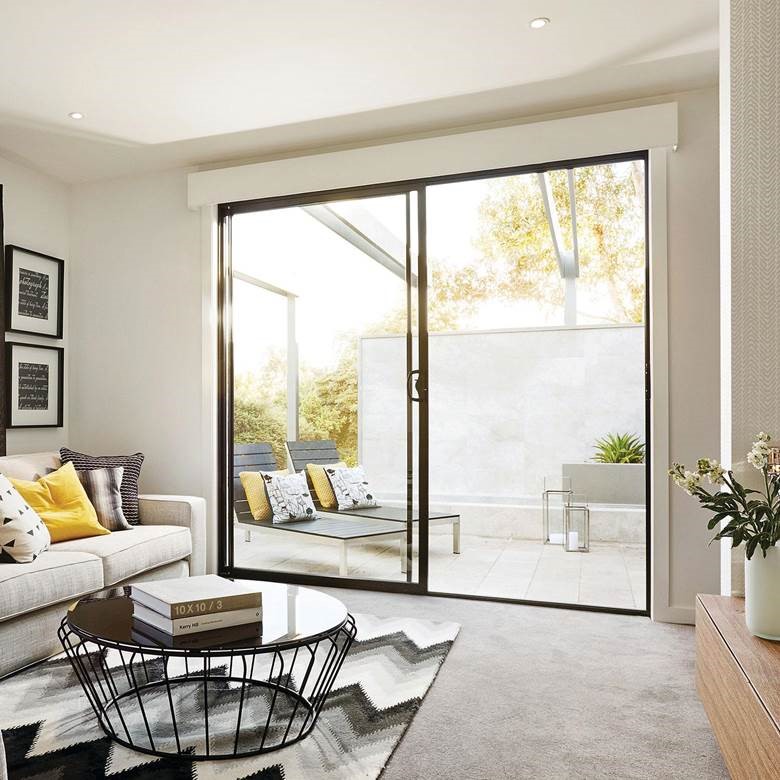

Comments